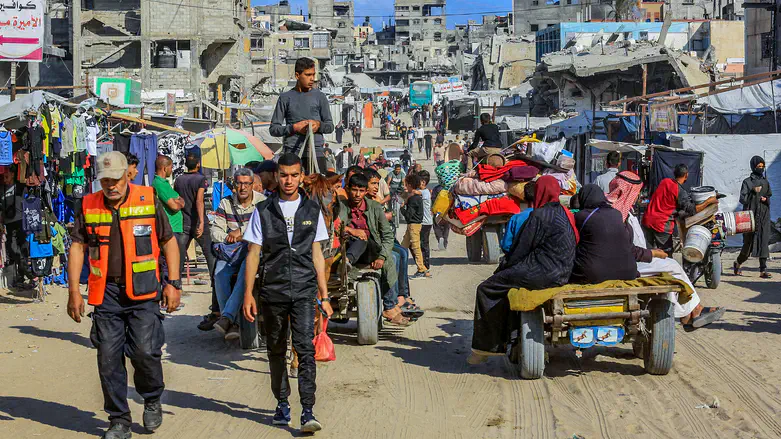
Moshe Raab, PhD, is a software consultant living in Maale Adumim, Israel, with his wife of 46 years. On September 6, 1970, he and his family — his mother and four siblings — were among the hostages aboard a TWA flight hijacked by the Popular Front for the Liberation of Palestine. He is a volunteer in the Forum Tikva.
Lately, I’ve found myself lying awake at night, unable to sleep. My thoughts are consumed with worry for my children and grandchildren — a fear rooted not only in recent events, but in a personal history that continues to echo through time.
On September 6, 1970 — fifty-five years ago — my mother, my five siblings, and I were hijacked by the Popular Front for the Liberation of Palestine. I was just 14 years old. Our TWA flight, en route from Frankfurt to New York, was diverted midair and forced to land in the Jordanian desert on a makeshift runway lit by oil-barrel flares. We were held hostage by terrorists — a traumatic experience that shaped my understanding of violence, extremism, and the cost of inaction.
Today, I see history repeating itself. I hear voices blaming the Israeli government for the prolonged captivity of hostages taken on October 7, 2023. While it is fair to scrutinize any government's preparedness, let us be clear: it was Hamas — not the Israeli government — that committed the atrocities of that day. It was Hamas that raped, mutilated, burned, and kidnapped civilians. And it is Hamas that continues to hold hostages, refusing to release them despite international outcry.
The Israeli government, like every Israeli citizen, wants the hostages returned — immediately and unconditionally. But Hamas has no intention of releasing them. Why should they? For decades, groups like Hamas and their ideological predecessors have rarely faced meaningful consequences for their actions. The international community has too often responded with equivocation or silence.
I understand the concern for the humanitarian crisis in Gaza. But I also see a troubling imbalance in the global conversation. While some media outlets highlight suffering in Gaza, Arab television broadcasts show open restaurants, stocked stores, and a functioning black market. Meanwhile, the suffering of Israeli and foreign hostages — including children — is often overlooked. Where is the outrage for the Bibas family, whose mother and babies were taken alive and later murdered?
President Trump recently expressed shock that none of the freed hostages reported even a single act of kindness from their captors or the civilians around them. But should we be surprised? When 72% of Gazans reportedly supported the October 7 massacre, and when civilians returned escaped hostages to Hamas rather than helping them to safety, the narrative of widespread innocence becomes harder to sustain.
I remember what it was like to be a hostage. I remember the so-called “innocent” children paraded through our plane, mocking us, spitting at us. I remember the rocks hurled at our convoy upon release, the chants of *Itbach al-Yahud* — “Slaughter the Jews.” These were not isolated incidents. They were symptoms of a culture steeped in hatred, passed down through generations.
On October 7, 2023, my daughter and her five children — my grandchildren — narrowly escaped death as they fled the Gaza Envelope under fire. Her voice broke only after they reached safety. It reminded me of my own mother, who didn’t cry during our captivity, but wept when we were finally reunited with my father. The parallels are chilling: fifty-five years ago, my mother and her five children were taken hostage by terrorists. Last year, my daughter and her five children were nearly taken by their descendants.
Is it any wonder I lie awake at night?
When we were hijacked in 1970, King Hussein of Jordan responded decisively. He launched a civil war against the terrorists, demanding the release of all hostages and their unconditional surrender. He did not offer humanitarian aid, electricity, or water. He offered consequences. Within nine days, the terrorists surrendered and released every hostage unharmed.
We must learn from history. As philosopher George Santayana warned, “Those who cannot remember the past are condemned to repeat it.” I remember the past — perhaps too vividly. But I fear that too many others have forgotten, or worse, chosen to ignore it.
If we truly care about peace, about justice, and about the future of all children — Israeli and Palestinian Arab alike — we must demand the immediate and unconditional release of all hostages. Only then can we begin to talk about humanitarian aid, reconciliation, and rebuilding. But that conversation must begin with accountability, and with a commitment to teaching future generations not hatred, but humanity.